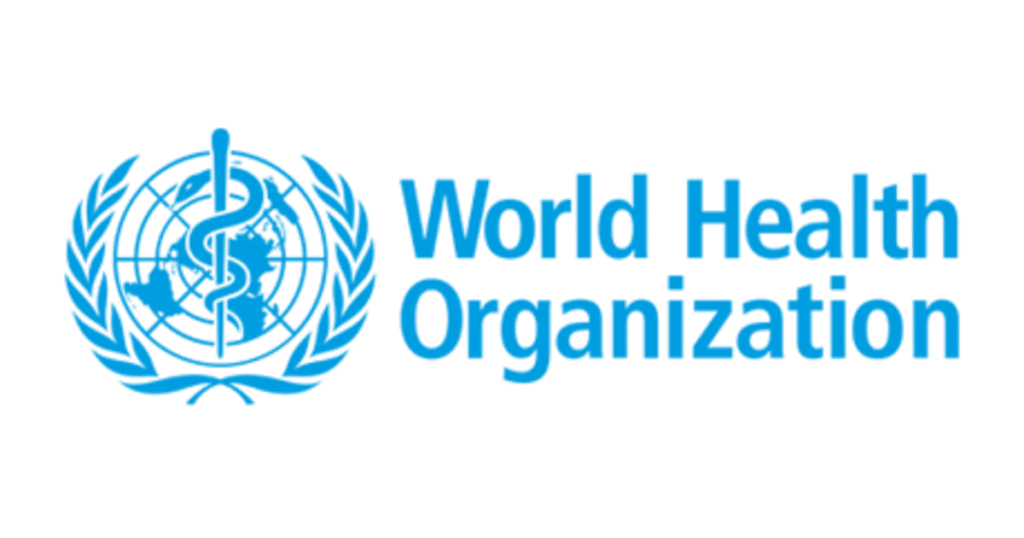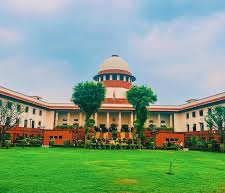
Introduction: Global Health at a Crossroads
On January 20, 2025, U.S. President Donald Trump announced America’s second withdrawal from the World Health Organization (WHO), reigniting an old question: Who governs global health in an increasingly multipolar world?
This time, the answer cannot be another sentimental call for “global solidarity.” The world has changed, and so must our approach to health governance. COVID-19 exposed deep structural flaws within the WHO: excessive donor dependency, bureaucratic inertia, and an outdated worldview rooted in post-WWII Western dominance.
The Global South-especially India-must now lead. Not in reaction to the West’s retreat, but as a proactive architect of a development-oriented, responsibility-driven global health order. This is not a crisis. It is an opportunity.
I. The WHO: A Rusting Relic of a Bygone Era
Post-War Design, Pre-COVID Performance
Founded in 1948, the WHO was born of noble intent but has failed to evolve with changing geopolitical and public health realities. The COVID-19 pandemic revealed critical shortcomings:
- Donor Skew: 80% of WHO’s funding is voluntary, sourced mainly from wealthy nations, corporations, and private foundations. This skews priorities toward donor interests, not actual public health needs.
- Lack of Enforcement: The WHO has no power to compel nations to share data or comply with protocols.
- Western Bias: Fewer than 20% of senior staff are from Asia, Africa, or Latin America, although those continents house 85% of the global population (WHO Annual Report, 2023).
- Pandemic Failures: The WHO failed to challenge Chinese (and US) opacity, delayed pandemic alerts, failed to ensure the production of safe and effective vaccines and equitable access to them while ignoring the existence of reliable and inexpensive medicines. Over 75% of initial vaccine doses (known to have potentially dangerous side effects) went to just 10 countries.
The WHO today resembles a charity: donor-dominated, underpowered, and distant from the lived realities of the Global South.
II. A Strategic Vacuum: India’s Moment of Responsibility
The United States’ retreat is not just an absence, it is an opening. For too long, global health has been treated as a Western-led humanitarian exercise, detached from the developmental aspirations of the Global South.
India must now lead, drawing from Bharat’s civilizational ethos, rising institutional capabilities, and the trust it commands across developing nations.
“lokāḥ samastāḥ sukhino bhavantu”
May all beings in all the worlds be happy.- Rig Veda
Why India?
- Civilizational Ethos: Rooted in “Vasudhaiva Kutumbakam,” India sees health as moral responsibility, not as a source of strategic leverage.
- Pharmacy of the World: Supplies 60% of global vaccines and 20% of generic medicines; Vaccine Maitri reached 100+ countries.
- Digital Leadership: CoWIN platform managed over 2 billion vaccinations, praised globally.
- Accessible Healthcare: The Jan Aushadhi scheme and Ayushman Bharat demonstrate India’s scale and affordability in public health.
This is not charity. This is Atmanirbhar health diplomacy in action.
III. Five Structural Reforms for a Responsible WHO
1. Decentralize the WHO: Empower Regional Leadership
The Geneva-centric model is blind to local realities. A multipolar WHO must:
- Delegate real authority and funding to regional offices like SEARO, with India as a core anchor.
- Validate civilisational approaches-from Ayurveda to African community health models.
- Recognise grassroots innovation, such as India’s AI-driven telemedicine or eSanjeevani.
“Think globally, govern locally.”
2. From Donor Dependency to Development Investment
“Yena kena prakāreṇa prāṇināṁ paripālanam”
By whatever means necessary, preserve and protect life.- Manusmriti
To replace donor-led agendas with a policy guided by the principle of global parity, India should push for:
- A Global Health Infrastructure Fund, modeled after the World Bank/AIIB, with GDP-weighted contributions.
- South-South investment vehicles led by BRICS, ASEAN, and the African Union.
This is development-focused capitalism with conscience, not charity!
3. Unleash Market-Based Innovation & Open IP Platforms
India must lead the creation of a WHO-backed Health Innovation Exchange, featuring:
- Open IP Models: Tiered licensing and open-source government-funded health innovations.
- Compulsory Licensing: Like India’s use of Section 92 during HIV and cancer crises.
- Regional R&D Networks: Linking ICMR, CSIR, IITs with African and ASEAN institutions.
This model can drive innovation without monopoly.
4. Balance Coordination with Sovereignty
“Swadharme nidhanam śreyaḥ, paradharmo bhayāvahaḥ”
Better to die doing one’s own duty than follow another’s path in fear.- Bhagavad Gita 3.35
A renewed WHO must respect sovereign autonomy:
- Conduct Universal Health Preparedness Reviews (UHPRs) with consent and transparency.
- Enable opt-in early warning systems without coercion.
This creates a national sovereignty-first WHO that builds trust and cooperation.
5. Institutionalize South-South Health Diplomacy
“Sangacchadhvam samvadadhvam sam vo manamsi janatam”
Move together, speak together, let your minds be in harmony.- Rig Veda 10.191
India must anchor a Global South Health Leaders Forum, aligning IBSA, BRICS, SCO, and G20 around:
- De-monopolising governance
- Decolonising health knowledge
- Driving culturally contextualised policy
Let the voice of Bharat- from Varanasi to Nairobi-resonate & vibe higher!
IV. India’s Civilizational Framework: Dharma Over Dependency
“Dharmo rakṣati rakṣitaḥ”
Dharma protects those who uphold it.- Mahabharata
India’s frameworks are not passive relics; they are active global forces:
- Health as Dharma (duty), not charity.
- Healing as Seva (service), not industry.
- Prevention over crisis response.
Let the WHO integrate plural epistemologies. Ayurveda and Charaka Samhita spoke of immunity, mental hygiene, and seasonal diets centuries ago. It’s time to validate-not marginalize-this wisdom.
V. A Global Health Order for the Multipolar Century
This century must not belong to any single superpower. It must be civilisationally plural and development-oriented:
- Shared Standards: Co-defined by the Global South.
- Health as Resilience, not extraction.
- Institutions as Enablers: Accountable, lean, and respectful of sovereignty.
India must not merely critique WHO’s shortcomings. It must propose new paradigms.
Conclusion: From Strategic Patience to Strategic Design
“Uttiṣṭhata jāgrata prāpya varān nibodhata”
Arise, awake, and stop not until the goal is reached.- Katha Upanishad 1.3.14
The collapse of the Western monopoly over morality, money, and medicine is not a void to be filled with nostalgia. It is a space to be redesigned with intent.
India must now:
- Recast global health as a pillar of economic dignity
- Institutionalise South-South cooperation in health
- Reimagine the WHO-not just reform it
Let health governance be driven by sovereign cooperation, development-oriented investment, and a shared Dharma for all.
The world is ready. And India must lead.
References
- Ministry of External Affairs, Government of India. (2025, May 20). Prime Minister Shri Narendra Modi addresses the 78th Session of the World Health Assembly in Geneva. https://www.mea.gov.in/press-releases.htm?dtl/39506/Prime_Minister_Shri_Narendra_Modi_addresses_the_78th_Session_of_the_World_Health_Assembly_in_Geneva_May_20_2025=
- Paquette, D. (2025, May 20). WHO signs international pandemic response treaty without the U.S. The Washington Post. https://www.washingtonpost.com/world/2025/05/20/who-pandemic-agreement-world-health-rfk-kennedy/
- World Health Organization. (2025, May 20). Global leaders reaffirm commitment to WHO with at least US$ 170 million raised at World Health Assembly 2025 pledging event. https://www.who.int/news/item/20-05-2025-global-leaders-reaffirm-commitment-to-who-with-at-least-us-170-million-raised-at-world-health-assembly-2025-pledging-event
- Mukherjee, R., & Raghavan, S. (2025). India’s civilizational health diplomacy: Dharma and development. The Round Table: The Commonwealth Journal of International Affairs, 114(2), 145–162. https://doi.org/10.1080/00358533.2025.2478120
- Chand, M. (2023). Assessing India’s engagement with G20 and BRICS: A global health leadership perspective. India Quarterly, 79(1), 35–50. https://doi.org/10.1177/09749284231203323
- Health Innovation Exchange. (n.d.). About Us. https://hiex.ch/
- World Health Organization. (2022). Universal Health and Preparedness Review (UHPR). https://www.who.int/emergencies/operations/universal-health—preparedness-review
- Suryadi, D., & Fadillah, R. (2021). India’s vaccine diplomacy and global health governance: Between national interests and human security. Review of Policy Research, 3(2), 45–58. https://ejournal.uinsgd.ac.id/index.php/rpj/article/download/927/337/3051
- Vasanthakumar, J., & Mathew, J. (2023). CoWIN: A technological marvel for pandemic response in India. Journal of Health Informatics in Developing Countries, 17(3). https://www.ncbi.nlm.nih.gov/pmc/articles/PMC10470555/
- Harman, S., & Wenham, C. (2023). Pandemic preparedness and the politics of health governance: The World Health Organization and the challenge of reform. Social Science & Medicine, 319, 115751. https://doi.org/10.1016/j.socscimed.2022.115751






Add comment